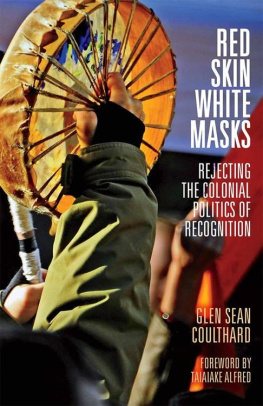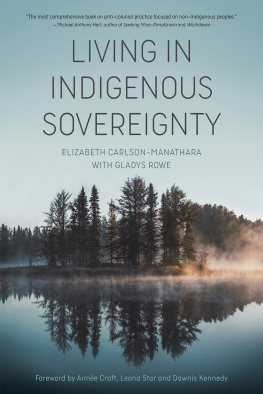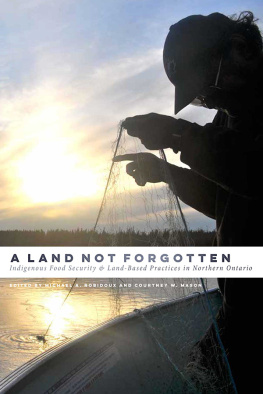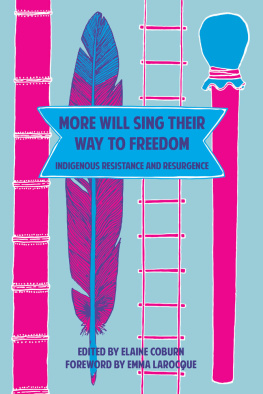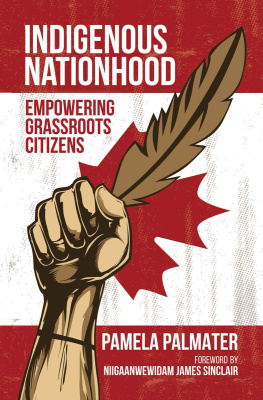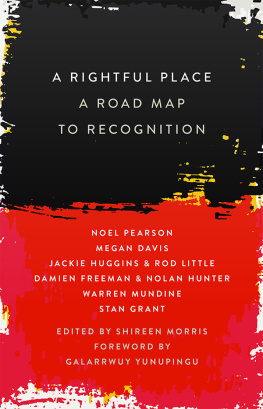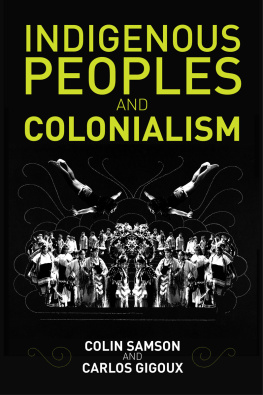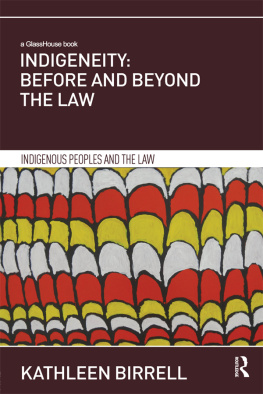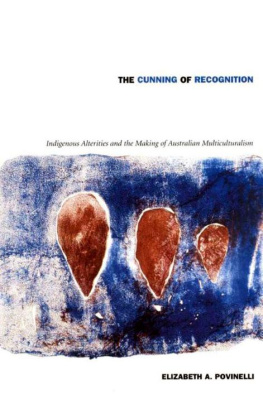Red Skin, White Masks
Indigenous Americas
Robert Warrior, Series Editor
Chadwick Allen, Trans-Indigenous: Methodologies for Global Native Literary Studies
Raymond D. Austin, Navajo Courts and Navajo Common Law: A Tradition of Tribal Self-Governance
Lisa Brooks, The Common Pot: The Recovery of Native Space in the Northeast
Kevin Bruyneel, The Third Space of Sovereignty: The Postcolonial Politics of U.S.-Indigenous Relations
Glen Sean Coulthard, Red Skin, White Masks: Rejecting the Colonial Politics of Recognition
James H. Cox, The Red Land to the South: American Indian Writers and Indigenous Mexico
Daniel Heath Justice, Our Fire Survives the Storm: A Cherokee Literary History
Brendan Hokowhitu and Vijay Devadas, The Fourth Eye: Mori Media in Aotearoa New Zealand
Thomas King, The Truth About Stories: A Native Narrative
Scott Richard Lyons, X-Marks: Native Signatures of Assent
Jean M. OBrien, Firsting and Lasting: Writing Indians out of Existence in New England
Paul Chaat Smith, Everything You Know about Indians Is Wrong
Gerald Vizenor, Bear Island: The War at Sugar Point
Robert Warrior, The People and the Word: Reading Native Nonfiction
Robert A. Williams, Jr., Like a Loaded Weapon: The Rehnquist Court, Indian Rights, and the Legal History of Racism in America
Red Skin, White Masks
Rejecting the Colonial Politics of Recognition
Glen Sean Coulthard
Foreword by Taiaiake Alfred
Indigenous Americas

University of Minnesota Press
Minneapolis London
Portions of chapter 1 were previously published as This Is Not a Peace Pipe: Towards a Critical Indigenous Philosophy, University of Toronto Quarterly 77, no. 1 (2008): 16466, reprinted with permission from University of Toronto Press, www.utpjournals.com; and as Subjects of Empire: Indigenous Peoples and the Politics of Recognition in Canada, Contemporary Political Theory 6, no. 4 (2007): 43760. Portions of chapter 3 were previously published as Resisting Culture: Seyla Benhabibs Deliberative Approach to the Politics of Recognition in Colonial Contexts, in Deliberative Democracy in Practice, ed. David Kahane (Vancouver, BC: University of British Columbia Press, 2009), 138-54, reprinted with permission of the publisher, copyright University of British Columbia Press 2009, all rights reserved.
Copyright 2014 by the Regents of the University of Minnesota
All rights reserved. No part of this publication may be reproduced, stored in a retrieval system, or transmitted, in any form or by any means, electronic, mechanical, photocopying, recording, or otherwise, without the prior written permission of the publisher.
Published by the University of Minnesota Press
111 Third Avenue South, Suite 290
Minneapolis, MN 55401-2520
http://www.upress.umn.edu
Library of Congress Cataloging-in-Publication Data
Coulthard, Glen Sean.
Red skin, white masks : rejecting the colonial politics of recognition / Glen Sean Coulthard ; foreword by Taiaiake Alfred.
(Indigenous Americas)
Includes bibliographical references and index.
ISBN 978-1-4529-4243-8
1. Indians of North AmericaCanadaGovernment relations. 2. Indians of North AmericaCanadaPolitics and government. 3. Indians of North AmericaLegal status, laws. etc.Canada. 4. Indians, Treatment ofCanada. 5. CanadaEthnic relationsPolitical aspects. I. Title.
E92.C68 2014
323.1197071dc23
2013049674
The University of Minnesota is an equal-opportunity educator and employer.
For Richard Park Coulthard (19422012)
Contents
Taiaiake Alfred
Taiaiake Alfred
Not so very long ago, in Canada there numbered just less than fourteen million inhabitants: thirteen million human beings, and half a million Natives. The former had the land; the others had the memory of it. Between the two there were hired chiefs, an Indian Affairs bureaucracy, and a small bourgeoisie, all three shams from the very beginning to the end, which served as go-betweens. In this unending colony the truth stood naked, but the settlers preferred it hidden away or at least dressed: the Natives had to love them and all they had done, something in the way a cruel father is still loved by the children who are wounded by his selfish hands. The white lite undertook to manufacture a Native lite. They picked promising youths, they made them drink the fire-water principles of capitalism and of Western culture; they educated the Indian out of them, and their heads were filled and their mouths were stuffed with smart-sounding hypocrisies, grand greedy words that stuck in their throats but which they spit out nonetheless. After a short stay in the university they were sent home to their reserves or unleashed in the cities, whitewashed. These walking lies had nothing to say to their brothers and sisters that did not sound false, ugly, and harmful; they only mimicked their masters. From buildings in Toronto, from Montral, from Vancouver, businessmen would utter the words, Development! Progress! and somewhere on a reserve lips would open... opment!... gress! The Natives were complacent and compliant; it was a rich time for the white lite.
Then things changed. The mouths of Natives started opening by themselves; brown voices still spoke of the whites law, democracy, and liberal humanism, but only to reproach them for their unfairness and inhumanity. White lites listened without displeasure to these polite statements of resentment and reproach, these pleas for reconciliation, with apparent satisfaction. See? Just like we taught them, they are able to talk in proper English without the help of a priest or of an anthropologist. Just look at what we have made of the backward savagesthey sound like lawyers! Whites did not doubt that the Natives would accept their ideals, since the Natives accused the whites of not being faithful to them. Settlers could still believe in the sanctity of their divine civilizing mission; they had Europeanized the Natives, they had created a new kind of Native, the assimilated Aboriginal. The white lites took this all in and whispered, quiet between themselves over dinner, as good progressive persons of the (post)modern world: Let them cry and complain; its just therapy and worth the expense. Its better than giving the land back!
Now the sham is coming to an end. Native thinkers and leaders are coming on the scene intent on changing things, entirely. With the last stores of our patience, Native writers, musicians, and philosophers are trying to explain to settlers that their values and the true facts of their existence are at great odds, and that the Native can never be completely erased or totally assimilated. This New Indigenous Intelligentsia is trying to get settlers to understand that colonialism must and will be confronted and destroyed. It is not 1947; were not talking about reforming the Indian Act so that we can become little municipalities. It is not 1982; were not talking about going to court to explore empty constitutional promises.
It is the twenty-first century. Listen: what is treated in the Canadian discourse of reconciliation as an unhealthy and debilitating incapacity to forgive and move on is actually a sign of a critical consciousness, of our sense of justice and injustice, and of our awareness of and unwillingness to reconcile. Coulthard is talking about rising up, Seeing Red, about resurgence and the politics of authentic self-affirmation. This is a call to combat contemporary colonialisms objectification and alienation and manipulation of our true selves. He understands that in Canada today settlement of conflict means putting the past behind us, a willful forgetting of the crimes that have stained the psyche of this country for so long, a conspiracy of collective ignorance, turning a blind eye to the ongoing crimes of theft, fraud, and abuse against the original people of the land that are still the unacceptable everyday reality in Canada. So how could we settle and accept and not question and challenge the naturalized injustice that frames and shapes and gives character to our lives? There is nothing natural about the dominance of white people on the North American continent and the removal and erasure of our people, our laws, and our cultures from our homelands.
Next page
